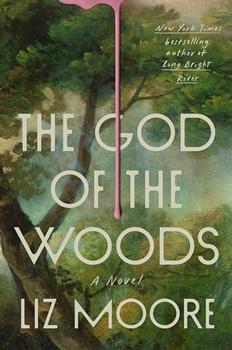
Exploring the Mysteries of Our Universe's First Seconds (Science Essentials)
by Dan Hooper
A new look at the first few seconds after the Big Bang - and how research into these moments continues to revolutionize our understanding of our universe.
Scientists in the past few decades have made crucial discoveries about how our cosmos evolved over the past 13.8 billion years. But there remains a critical gap in our knowledge: we still know very little about what happened in the first seconds after the Big Bang. At the Edge of Time focuses on what we have recently learned and are still striving to understand about this most essential and mysterious period of time at the beginning of cosmic history.
Taking readers into the remarkable world of cosmology, Dan Hooper describes many of the extraordinary and perplexing questions that scientists are asking about the origin and nature of our world. Hooper examines how we are using the Large Hadron Collider and other experiments to re-create the conditions of the Big Bang and test promising theories for how and why our universe came to contain so much matter and so little antimatter. We may be poised to finally discover how dark matter was formed during our universe's first moments, and, with new telescopes, we are also lifting the veil on the era of cosmic inflation, which led to the creation of our world as we know it.
Wrestling with the mysteries surrounding the initial moments that followed the Big Bang, At the Edge of Time presents an accessible investigation of our universe and its origin.
"Beginning with Carl Sagan's Cosmos in 1980, Big Bang books have become a genre that curious readers should check out every few years to keep up with breakthroughs (gravity waves being the latest). They can't go wrong with Hooper's. A lucid account that is neither dumbed down nor overly difficult." - Kirkus Reviews (starred review)
"[At the Edge of Time]'s enthusiasm for its subject is contagious. From Einstein's theories and Edwin Hubble's discoveries to the Large Hadron Collider, the text presents scientific advancement as an exciting odyssey—if one that is, for the time being, often characterized by questions, to be answered at a future date to the satisfaction of all." - Rebecca Foster, Foreword Reviews
"At the Edge of Time clearly and cogently lays out our current understanding of the very early universe, and the prospects for future progress. In one particularly exciting section, Hooper describes the process of identifying and studying a candidate dark matter signal from the perspective of its discoverer. This is a fascinating first-hand account of an ongoing scientific debate." - Tracy Robyn Slatyer, Massachusetts Institute of Technology
"What a journey, from the very birth of the universe to its ultimate future. In accessible fashion, Hooper's book does a great job explaining the fundamental laws of physics and showing how they play out in cosmic evolution." - Sean Carroll, author of Something Deeply Hidden: Quantum Worlds and the Emergence of Spacetime
"Where Weinberg's The First Three Minutes left off, Hooper's At the Edge of Time picks up. A riveting tour of modern cosmology told by one of its savviest guides, Hooper's book takes us on a journey from our universe's formerly inscrutable past to mesmerizing possible scenarios in its far future. A fascinating story that is to be savored." - Brian Keating, author of Losing the Nobel Prize: A Story of Cosmology, Ambition, and the Perils of Science's Highest Honor
This information about At the Edge of Time was first featured
in "The BookBrowse Review" - BookBrowse's membership magazine, and in our weekly "Publishing This Week" newsletter. Publication information is for the USA, and (unless stated otherwise) represents the first print edition. The reviews are necessarily limited to those that were available to us ahead of publication. If you are the publisher or author and feel that they do not properly reflect the range of media opinion now available, send us a message with the mainstream reviews that you would like to see added.
Any "Author Information" displayed below reflects the author's biography at the time this particular book was published.
Dan Hooper is a senior scientist and the head of the Theoretical Astrophysics Group at the Fermi National Accelerator Laboratory and a professor of astronomy and astrophysics at the University of Chicago. He is the author of Dark Cosmos and Nature's Blueprint (both Smithsonian/Harper Collins). He lives in Oak Park, Illinois.






Your guide toexceptional books
BookBrowse seeks out and recommends the best in contemporary fiction and nonfiction—books that not only engage and entertain but also deepen our understanding of ourselves and the world around us.